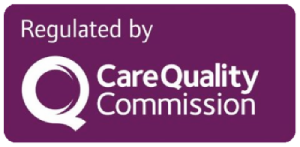Modern Slavery Act Statement
Introduction
Organizational Structure and Business Activities
Policies on Modern Slavery and Human Trafficking
We have established policies that reflect our commitment to preventing modern slavery and human trafficking within our organization. Our policies include:
• A robust stance against any form of modern slavery or human trafficking.
• A commitment to conducting due diligence to identify and assess potential risks in our supply chains.
• Procedures for reporting concerns and suspected cases of modern slavery.
Due Diligence Processes
Harmonna Healthcare conducts due diligence on suppliers to assess and mitigate the risk of modern slavery. Our due diligence processes include:
- Regular risk assessments of our supply chains to identify and address areas of potential
- Engaging with suppliers to ensure they share our commitment to preventing modern
- Incorporating ethical considerations into our supplier selection and evaluation
Employee Training
We are committed to raising awareness among our employees about the risks of modern slavery and human trafficking. Our initiatives include:
- Training programs to educate employees on recognizing and reporting signs of modern
- Regular updates to employees on our policies and practices related to modern
Effectiveness of Measures Taken
We continually assess the effectiveness of our policies and due diligence processes to ensure they are addressing the risks of modern slavery. This includes:
- Regular reviews of our supply chain practices and
- Collaboration with industry partners and organizations to share best
Risks
We acknowledge the unique risks associated with modern slavery within the healthcare sector. We are committed to addressing three primary risks: Workforce Exploitation, Community Engagement Risk and Supply Chain Complexity in Recruitment. Our approach to each risk is outlined below:
Workforce Exploitation:
Assessment and Management:
- Identification: We have conducted a thorough review of our healthcare workforce, assessing vulnerabilities and potential risks of exploitation.
- Ethical Recruitment: We prioritize ethical recruitment practices, ensuring that all healthcare professionals, especially those recruited from overseas, are treated fairly and provided transparent information about their employment conditions.
- Training: Our staff receives ongoing training to recognize and report signs of exploitation, fostering a culture of vigilance against workforce exploitation.
Community Engagement Risk:
Assessment and Management:
- Stakeholder Identification: We identify stakeholders involved in community engagement to assess potential risks associated with diverse interactions.
- Vulnerability Assessments: Periodic vulnerability assessments are conducted to identify communities and individuals who may be at risk of exploitation or modern slavery.
- Ethical Partnership: We collaborate with community partners, ensuring shared values and commitment to ethical practices in engagement initiatives.
Supply Chain Complexity in Recruitment:
Assessment and Management:
- Transparency in Recruitment: We ensure transparency and fairness in our recruitment processes, especially when recruiting healthcare professionals internationally.
- Partnerships: Collaboration with reputable recruitment agencies helps us mitigate risks associated with the recruitment process and ensures compliance with ethical standards.
- Periodic Reviews: Regular reviews of our recruitment practices and partnerships are conducted to address any emerging risks and continuously improve our approach.
We are also aware more risks can arise and we are fully committed to addressing them in the same robust fashion as and when they are identified.
Future Steps
Harmonna Healthcare is dedicated to continuously improving our efforts to combat modern slavery. In the future, we will:
- Continue to refine and enhance our due diligence
- Collaborate with stakeholders to promote awareness and best practices in the healthcare
Approval and Review
This Modern Slavery Act statement has been approved by Margaret Soko, and it will be reviewed annually to ensure its continued relevance and effectiveness.
01/01/2024

